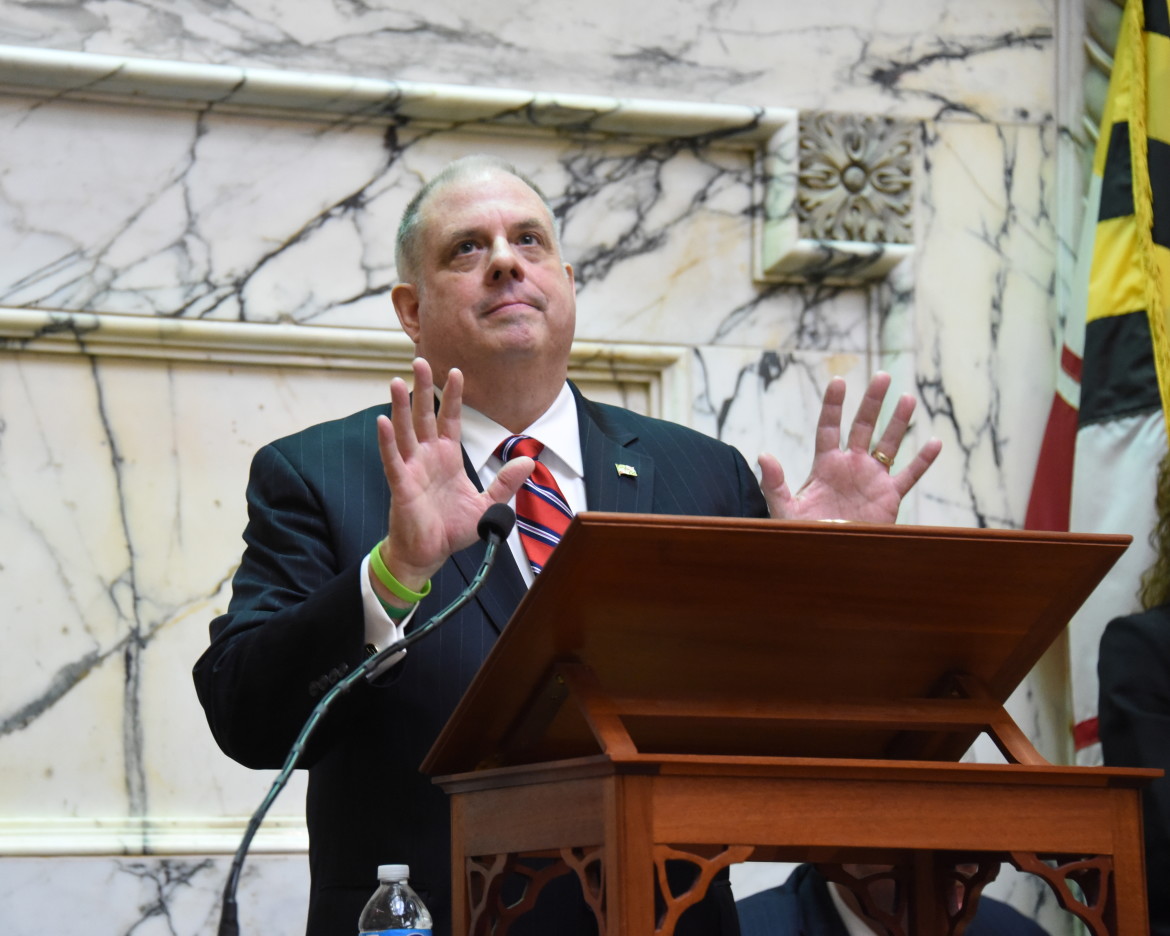Hogan’s veto of paid sick-leave bill is about politics
By Barry Rascovar
For MarylandReporter.com
Re-election is never far from Republican Gov. Larry Hogan’s mind. His veto of the paid sick-leave bill crafted by General Assembly Democrats illustrates that point.
Not only did Hogan toss the bill in his “reject” pile, he also paved the way for an “alternative reality” by establishing a task force to study the impact of paid sick leave on small businesses and come up with an ostensibly better plan.
Then he promised to work toward a compromise with the General Assembly – something he stubbornly has refused to do on this and most other issues over the past three legislative sessions. Few believe it will happen.
It all adds up to good politics for Hogan’s core voting groups.
He once again portrays himself as a defender of small business owners, calling this “job-killing bill” “disastrous” for the state economy. That’s why he vetoed it, he says.
But he assures us he wants to help low-paid workers who don’t get paid if they take time off when sick or to care for an ill family member. He offered a weak-sister version of the Democrats’ bill last December and now pledges to fashion a new, improved version that he can support.
What’s not to like about those two propositions?
Veto override?
Democrats, union advocates and the party’s far-left zealots want to turn Hogan’s veto into a cause celebre in advance of next year’s election, portraying him as “heartless” and out of touch with the 677,000 workers in the state who would have benefitted from the vetoed bill.
Democratic leaders in the legislature think they have the votes to override Hogan’s veto the next time the Assembly meets. What a slap-in-the-face this would be, right? It might even damage Hogan’s re-election bid.
That may be wishful thinking by Democrats, who can’t quite figure out Hogan’s political wizardry.
By continuing to muddy the waters with his own versions of the Democrats’ paid sick-leave bill, the governor blurs the public’s vision. There are stark differences between Hogan’s earlier plan and the Democrats’ bill – but few voters pay close enough attention to notice.
The governor’s latest tactic – a task force to show how damning the vetoed bill would have been and then suggest a slimmed-down façade of a paid sick-leave measure – will confuse the public even further, which may be what he wants.
There’s also the matter of timing.
Voters in the dark
Hogan knows Maryland voters have short memories. By the time the November 2018 election rolls around, some sort of paid sick leave bill will be on the books – and most voters won’t know what’s in the bill and which political party deserves credit.
Hogan will campaign as a champion of a “common sense” paid sick-leave bill. His Democratic opponent will have a tough time making him the villain.
Seven states and the District of Columbia have paid sick-leave laws. Thus far, the results have not be calamitous. Two counties in Maryland, Prince George’s and Montgomery, also have implemented paid sick leave ordinances with few repercussions.
The Department of Legislative Services says the Democrats’ measure would have a “significant impact” on small businesses, especially firms that employ large numbers of low wage-earners.
But DLS also notes the bill could result in lower turnover at those companies, reduce the spread of illness in the workplace and increase productivity.
Hogan, though, doesn’t buy it. For him, it is politically expedient to attack the Democrats’ paid sick-leave measure as a job-killer (without any back-up data) and offer tepid options in its place.
Will voters buy that strategy? There’s a good chance this will not be a hot-button issue 17 months from now. Once again, Hogan is proving a difficult politician to pin down.
Barry Rascovar’s blog is www.politicalmaryland.com. He can be reached at brascovar@hotmail.com.

MarylandReporter.com is a daily news website produced by journalists committed to making state government as open, transparent, accountable and responsive as possible – in deed, not just in promise. We believe the people who pay for this government are entitled to have their money spent in an efficient and effective way, and that they are entitled to keep as much of their hard-earned dollars as they possibly can.

